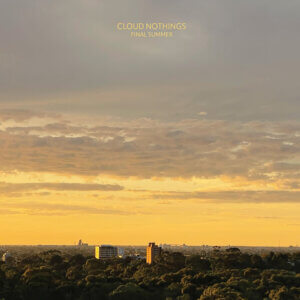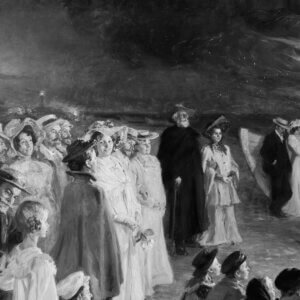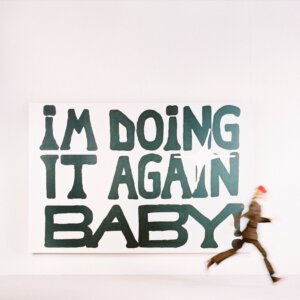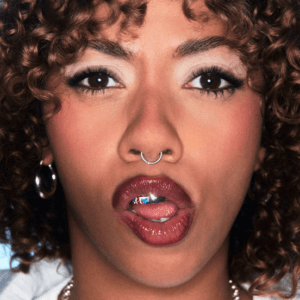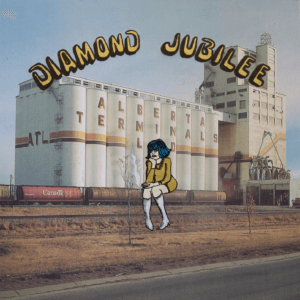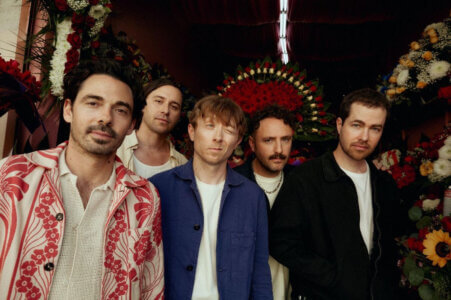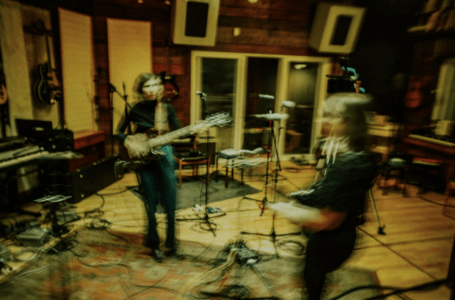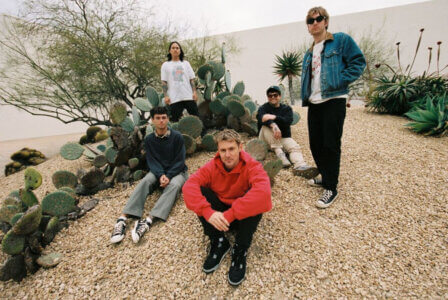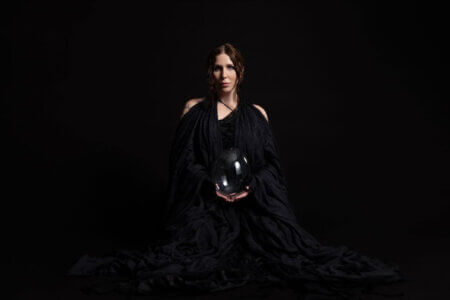Sylvan Esso Stay Creative
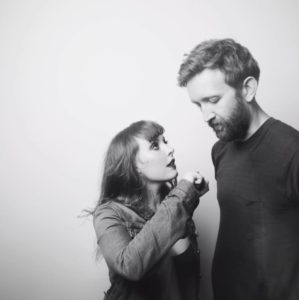
Sylvan Esso have been hailed for their uniquely human touch to electronic music since they released their debut back in 2014. From raw synth sounds to their harmonious vocals and heavy rhythms, the band continuously brought elements to genre that few were even considering. Following their What Now album however the band is striving to keep their creativity going so they can start their next album without a rusty creative muscle. We caught up with producer Nick Sanborn ahead of the band’s Montreal concert @ Corona Theatre on April 3 to talk about their new collaboration and how they maintain an analogue connection.
Northern Transmissions:It’s always sounded like you’ve been slowly drifting from folk deeper and deeper into your electronic sound, but with “Parad(w/m)e” it seems like you’re pushing both genres in equal parts, was this a conscious decision to find a middle ground or had you been drifting this way?
Nick Sanborn: It’s interesting because people really try to make the cross-genre thing a part of the story, but for us it just isn’t. We’re just trying to make accessible pop music that reflects how complicated it is to be a human being. It’s tough to put my feeling on how someone else might feel about that. But with “Parad(w/m)e” specifically, it was the nursery rhyme characteristics of the vocals. It’s one of those things that I love that Amelia does, and it’s referential to humanity. We love the idea of a nursery rhyme as something that’s passed from hand to hand. So it’s not surprising to me that it sneaks into her melody and the way she writes harmonies. In that song it came about very quickly. I made the beat with our friend John Hill, it’s actually the only song we’ve written with somebody else, which was weird. I made the beat and she had that whole vocal part all at once, and I think it was all done in about an hour. She had been wanting to write something that gleefully referenced the apocalypse. Maybe an anthem for an ostrich with its head in the sand. The idea of a nursery rhyme really fits that, something that’s childish and feels oblivious.
NT: Considering this was your first collaboration, what do you feel like having that extra energy around brought to the song?
NS: It’s weird, because I know for a lot of bands that really works. A lot of bands require a producer, and if
you’re doing any kind of normal instrumentation a producer can really help coalesce those different ideas and sounds into a singular vision. But both Amelia and I are producers who are capable of shaping a musical moment on our own, which is why we’ve never wanted to work with anybody else. For us the thing that makes the band special is that it’s just the two of us, and we don’t want to break that fragile thing by adding somebody else. So it was interesting because we went on this trip to try to write some songs with other people, whether or not they ended up being Sylvan Esso songs, not used or given to somebody else. It was a creative exercise because we always write together, so we thought what if we didn’t. So “Parad(w/m)e” was the one song that came out of that, that we liked and felt like a Sylvan Esso song to us. Despite the fact that it worked, it also weirdly confirmed for us that we prefer working just the two of us.
NT: Did you have any intentions of releasing all the songs from this session if things went well?
NS: For the first record, we got caught up in touring, and before we knew it we’d been playing shows on that record for three years and hadn’t written more than a few new songs. So this time around we thought, let’s try and stay productive. We wanted to keep the creative side of it moving and not stay lost in the live show. We didn’t like last time where we had to shift gears and try to remember how to write songs. This whole thing started as a way to stay productive without expectations. I think it’s helped us a lot, and I feel a lot better about the stuff we’re making. “Parad(w/m)e” felt like it lived in its own world and it didn’t need the context of an album. If anything it’s tough for me to see what would fit around it on a record. And we’ve finished other songs since then that do feel like they’re part of a larger thing. The other half was feeling like the top of the year was a good time to cleanse the palette. We wanted to feel like we were less on-cycle, and make music for the sake of making music.
NT: Something that’s always intrigued me about your band is that there always feels like a human and analogue element is there, so I was curious where you got ideas like hand pressing tape reels on songs like “Radio”?
NS: With any musical idea, it’s tough for me to pinpoint exactly where it comes from. These things definitely come from music I’ve listened to or music I like, but I don’t know if I could point directly at it. I think why I like it emotionally is because it makes me think about the fact that I’m an organism, I’m thinking about my relationship to a machine that other members of my species built. A drum machine misused reminds me of how a drum machine should be used. It starts bringing up all these ideas of the technology we’ve made to express ourselves, because almost everything we communicate these days is filtered through those machines. Reminding listeners that something is being translated is an interesting thing to do. When I’m producing something I want every sound to be a part of the emotional story for me, even if the listener doesn’t understand it. Making each sound a sound that is deeply personal for Amelia and I, and one that fits in the emotional story of the song helps each song feel like a diary entry. It makes it feel like something that only could of come from us.
NT: How did you get involved in the Roundhouse parties and what’s it been like to help and collaborate with younger people in the industry?
NS: I’m lucky enough to live in an incredibly diverse and rich musical population in the Triangle, and I think Roundhouse is really a by-product of that. I got involved by just going to their nights, it was something I’d always wanted to myself but never being home is a bad way to start a party. Every night I went was inspiring, and I just started helping out occasionally. It’s led to a lot of cool things, I’ve gotten to help people produce and mix tracks, I’ve even mastered releases now that they’re a label. I’m always ready to help out, but I’m not there enough to be an active member. I hope that it continues to grow because seeing kids come to a show, and then six months later they’re asking to play sets is the ultimate thing a scene can provide.
Words by Owen Maxwell
Latest Reviews
Tracks
Advertisement
Looking for something new to listen to?
Sign up to our all-new newsletter for top-notch reviews, news, videos and playlists.
